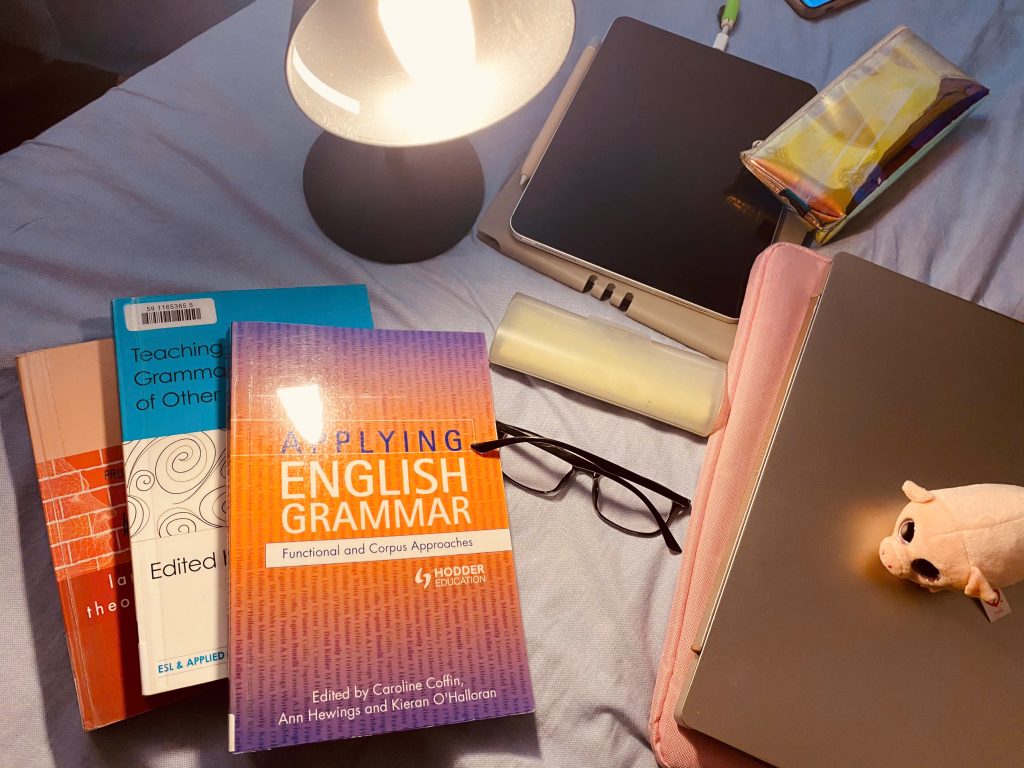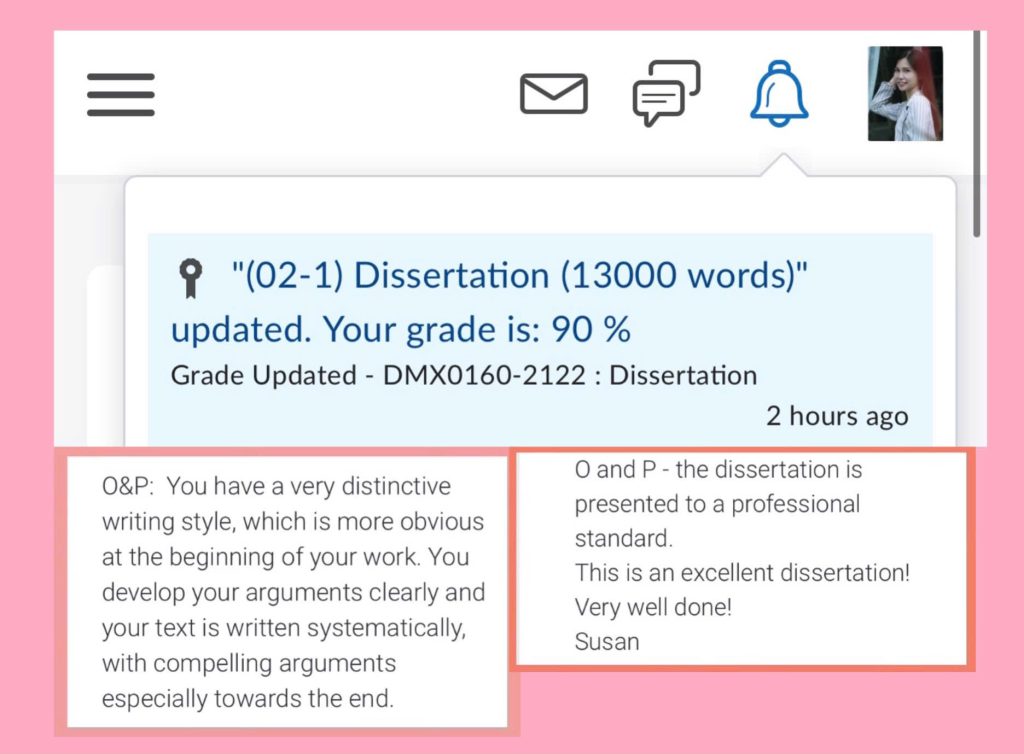Part 2: Describe something you did or you needed to do quickly in a short time
You should say:
What it was
Why you did it or why you needed to do
How you did or how you needed to do
And explain how you felt/feel about it
Các bài mẫu trên trang web này có khá nhiều từ vựng nâng cao. Mình không phải muốn ‘nhồi nhét’ để các bạn ‘ngợp’ đâu, mà mong muốn tạo thêm nhiều cơ hội để các bạn trau dồi thêm vốn từ vựng. Nếu có phần nào cảm thấy hơi khó, các bạn cứ thoải mái đơn giản hóa lại nhé!
Các bài mẫu chỉ mang tính chất tham khảo và đều đạt tiêu chuẩn từ vựng (lexical resource) và ngữ pháp (grammatical range and accuracy) ở mức 8+. Tuy nhiên, bạn không nên học thuộc lòng mà hãy trả lời theo cách/câu chuyện của riêng mình. Đồng thời, đừng quên chú trọng vào hai tiêu chí quan trọng nhất: phát âm (pronunciation) và độ trôi chảy (fluency).
Với đề này thì mình có rất nhiều ý tưởng, vì đi làm mình phải hoàn thành nhiều deadline nhanh chóng, nhưng để gần gũi với các bạn, mình sẽ nói về lần mình làm luận văn nhé. Tiện thể mình cũng “khoe”” luôn điểm luận văn cuối khóa đạt 90/100 điểm, cũng là điểm cao nhất khóa học thạc sĩ của mình tại UK hihi. :))


Bài mẫu
Typically, I’m not the kind of person to rush through tasks, as I prefer to allocate ample time for thorough preparation. However, there was one significant occasion when I had no choice but to work against the clock. This was during the summer of 2022, when I was working on my Master’s dissertation, and the pressure was intense.
My dissertation focused on student satisfaction with English Medium Instruction (EMI) courses in Vietnam. At the time, I was overwhelmed with my looming deadline, and the most challenging part was collecting data. I needed to gather responses from at least 300 students enrolled in EMI courses within just two weeks, which proved to be a daunting task. Finding participants was far more difficult than I had anticipated. I had to contact everyone I knew, leverage all my connections, and practically beg people to fill out the questionnaire. It was an incredibly nerve-racking experience, and to make matters worse, my thesis supervisor was known for being extremely demanding.
On top of that, I only had one week to complete the literature review, which meant I had to work day and night, sacrificing all social activities. I declined every party invitation and isolated myself from my friends in order to stay focused. The sheer amount of pressure was overwhelming, but I pushed through, knowing that there was no other option.
The entire process taught me invaluable lessons in time management and resilience. Despite the initial stress and anxiety, completing my dissertation within such a tight timeframe gave me an immense sense of accomplishment. I realized that I’m capable of handling high-pressure situations and working efficiently under deadlines. It was undoubtedly a challenging yet transformative experience, one that has shaped my approach to future academic and professional tasks.
Vocabulary
- Ample /ˈæmpəl/: More than enough; plentiful.
Vietnamese: Dư dả, phong phú.
2. Thorough /ˈθɜːroʊ/: Complete with great attention to detail and accuracy.
Vietnamese: Kỹ lưỡng, tỉ mỉ, chi tiết.
3. Overwhelmed /ˌoʊvərˈwɛlmd/: Feeling completely overcome or overloaded, especially with emotion or tasks.
Vietnamese: Bị quá tải, choáng ngợp.
4. Looming /ˈluːmɪŋ/: Appearing as a large, often threatening or impending event or situation that causes anxiety.
Vietnamese: Đang đến gần (thường mang tính chất đe dọa hoặc lo lắng).
5. Daunting /ˈdɔːntɪŋ/: Seeming difficult to deal with; intimidating.
Vietnamese: Nản chí, gây khó khăn.
6. Leverage /ˈlɛvərɪdʒ/: To use something to its maximum advantage.
Vietnamese: Tận dụng tối đa.
7. Nerve-racking /ˈnɜːvˌrækɪŋ/: Extremely stressful or causing great anxiety.
Vietnamese: Gây căng thẳng, hồi hộp.
8. Resilience /rɪˈzɪliəns/: The ability to recover quickly from difficulties or setbacks.
Vietnamese: Khả năng phục hồi nhanh chóng từ những khó khăn hoặc thất bại.
9. Transformative /trænsˈfɔːrmətɪv/: Causing a significant change in someone or something.
Vietnamese: Mang tính thay đổi lớn.
Part 3:
1. Why do some people often leave things to the last minute?
Many people tend to procrastinate because they may not feel motivated until a deadline looms. Some thrive under pressure and believe they perform better when they have a sense of urgency. However, this approach can be risky as it may lead to stress and lower the quality of work. Personally, I prefer to plan ahead, but I can understand why others might delay tasks until the last minute.
2. Do you think time management is important? Why or why not?
Absolutely. Good time management allows people to prioritize tasks, avoid unnecessary stress, and improve productivity. When someone manages their time effectively, they can allocate enough hours for preparation, which leads to better outcomes in both personal and professional life. Without time management, tasks can pile up, leading to overwhelming pressure.
3. What kinds of jobs require good time management skills?
Almost every job benefits from good time management, but jobs that involve multiple deadlines, such as project management, law, and education, require it the most. For instance, teachers need to balance lesson planning, grading, and other responsibilities within a limited time frame. Similarly, project managers have to ensure that each task is completed on time to keep the whole project on track.
4. How does technology affect people’s ability to complete tasks quickly?
Technology has dramatically improved people’s ability to complete tasks more efficiently. Tools like time management apps or software for organizing tasks allow individuals to track their progress and stay focused. However, technology can also be a distraction, as people might find themselves spending more time on social media or entertainment rather than focusing on their work. It’s a double-edged sword.
5. Is it always better to complete tasks quickly? Why or why not?
Not necessarily. While completing tasks quickly can save time, it can also compromise the quality of the work if rushed. Some tasks require careful attention to detail and cannot be completed hastily. It’s important to find a balance between speed and accuracy, depending on the nature of the task. For example, creative work or research often demands more time to ensure that it’s done properly.
Vocabulary
- Procrastinate /prəˈkræs.tɪ.neɪt/: Delay or postpone action
Vietnamese: Trì hoãn - Loom /luːm/: Appear threateningly close
Vietnamese: Hiện ra lờ mờ (thường theo cách đáng sợ) - Sense of urgency /sɛns əv ˈɜrʤənsi/: A feeling that something needs to be dealt with immediately
Vietnamese: Cảm giác cấp bách - Overwhelming /ˌoʊvərˈwɛlmɪŋ/: Very intense; hard to manage
Vietnamese: Quá tải, áp đảo - On track /ɒn træʧ/: Proceeding as planned, not falling behind
Vietnamese: Đúng lộ trình - Distraction /dɪˈstrækʃən/: Something that prevents someone from concentrating
Vietnamese: Sự xao nhãng - Double-edged sword /ˈdʌbl ˌɛʤd sɔrd/: Something that has both advantages and disadvantages
Vietnamese: Con dao hai lưỡi - Compromise /ˈkɒmprəmaɪz/: To lower the quality or standards of something
Vietnamese: Làm giảm chất lượng - Hastily /ˈheɪstɪli/: Done quickly without care
Vietnamese: Vội vàng, hấp tấp - Attention to detail /əˈtɛnʃən tə dɪˈteɪl/: Focusing on small, often important aspects of something
Vietnamese: Sự chú ý đến từng chi tiết
